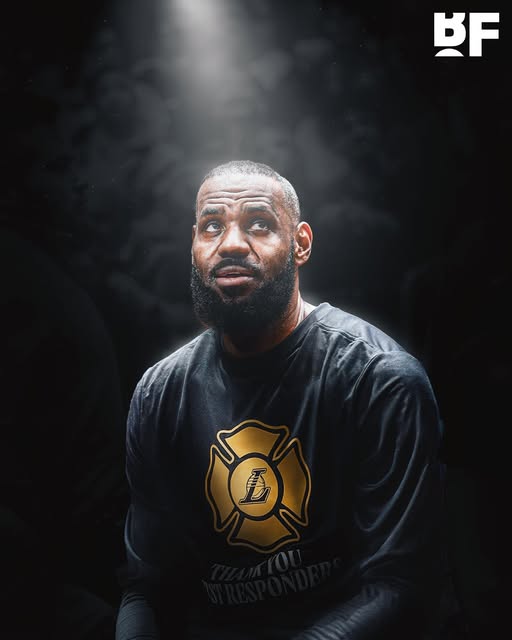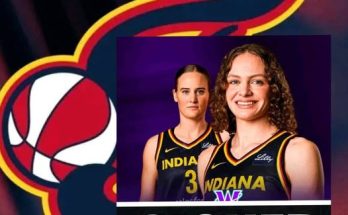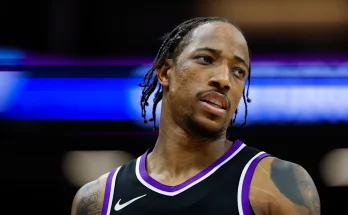Tim MacMahon recently made waves with his comments about the possibility of LeBron James signing with the Dallas Mavericks, stating that such a move “doesn’t make sense for either party.” His argument hinges on the idea that Dallas would have to gut its roster to accommodate LeBron, sacrificing three or four rotation players for what he describes as a “potentially ring-chasing retirement tour,” while also suggesting that the move wouldn’t align with LeBron’s own goals at this stage of his career. At first glance, this seems like a reasonable take, but when you dig deeper into the dynamics of the NBA, the Mavericks’ current situation, and LeBron’s legacy, the discussion becomes far more nuanced.
First, let’s address the Mavericks’ perspective. Dallas is a team built around Luka Dončić, a generational talent who has already proven he can carry a team deep into the playoffs. The front office has made it clear that their priority is to surround Luka with the right pieces to compete for championships. The idea of adding LeBron James, even at 39 years old, is undeniably tantalizing. He remains one of the most impactful players in the league, a brilliant playmaker, and a proven winner. The notion that acquiring him would require giving up multiple rotation players is valid, but the question is whether that cost is too high.
If the Mavericks were to trade for LeBron, they would likely have to part with key contributors—players like Tim Hardaway Jr., Josh Green, and possibly even a young talent like Jaden Hardy or draft compensation. That’s a significant price, but let’s not forget what LeBron brings beyond his on-court production. His leadership, basketball IQ, and ability to elevate teammates are intangible assets that could accelerate Luka’s growth as a leader and closer. The playoffs have exposed Dallas’ need for another high-level decision-maker when defenses key in on Luka. LeBron, even in a reduced role, would alleviate that pressure.
Then there’s the marketing and financial upside. LeBron is still the biggest name in basketball, and his presence would instantly make the Mavericks one of the most talked-about teams in the league. Ticket sales, merchandise, and global relevance would skyrocket. For an owner like Mark Cuban, who has always been willing to make bold moves, the opportunity to pair two of the smartest playmakers in NBA history might be too good to pass up, even if it comes at the cost of depth.
However, MacMahon’s skepticism about whether this makes sense for Dallas isn’t unfounded. The Western Conference is stacked, and simply adding LeBron doesn’t guarantee a title. The Mavericks would be banking on health, chemistry, and LeBron’s ability to defy Father Time for another season. If the trade backfires, they could find themselves in a situation where they’ve mortgaged their future for a short-term gamble. Depth matters in the playoffs, and losing multiple rotation players could leave the team vulnerable when injuries inevitably arise.
Now, let’s examine whether this move makes sense for LeBron. At this stage of his career, he’s no longer chasing individual accolades—he’s focused on winning and cementing his legacy. The idea that joining Dallas would be a “ring-chasing retirement tour” is a bit reductive. LeBron has always been strategic about his career moves, and if he were to consider the Mavericks, it would be because he sees a real path to contention. Playing alongside Luka would give him the best co-star he’s had since his early days with Kyrie Irving in Cleveland. The fit is intriguing: Luka can handle the primary playmaking load, allowing LeBron to play more off the ball and conserve energy for the playoffs.
But there are legitimate reasons why LeBron might hesitate. The Lakers, despite their flaws, can offer him the chance to compete in a major market with the resources to retool the roster around him. If he stays in Los Angeles, he can finish his career with the franchise where he won a championship and where his family is settled. Moving to Dallas would mean uprooting his life once again, and at this stage, comfort and stability may weigh heavily in his decision.
Another factor is legacy. LeBron has always been conscious of his place in history, and joining forces with another superstar like Luka could be seen as yet another superteam move. While there’s nothing wrong with that—many all-time greats have sought out elite teammates—it could fuel the narrative that he needed yet another elite co-star to compete for titles. Then again, if the result is another championship, would anyone really care?
The financial aspect can’t be ignored, either. LeBron is set to make nearly $50 million next season if he opts into his player option, and any trade would have to match that salary. The Mavericks would have to structure a deal carefully to avoid completely gutting their roster, which complicates matters. If LeBron were willing to take a pay cut for the right situation, that could open more possibilities, but there’s no indication he’s interested in doing so.
Ultimately, while the idea of LeBron in Dallas is fun to think about, the practical hurdles are significant. The Mavericks would have to weigh the immediate boost in star power against the long-term cost of losing depth and flexibility. For LeBron, it would mean betting on a new organization late in his career, trusting that the pieces around him and Luka would be enough to topple teams like Denver, Boston, or Oklahoma City.
Tim MacMahon’s assessment isn’t wrong—there are real reasons why this move might not work for either side. But the NBA is a league where superstar pairings can shift the balance of power overnight. If the Mavericks believe LeBron puts them over the top, they might be willing to take the risk. And if LeBron sees Dallas as his best shot at one more ring, he might be willing to make the leap.
In the end, it’s a high-stakes gamble. For Dallas, it could mean the difference between being a playoff team and a true contender. For LeBron, it could be the final chapter in one of the greatest careers in sports history. But as MacMahon pointed out, the risks are real, and the downside could leave both sides regretting the decision. The allure of greatness is powerful, but in this case, the practical obstacles might be too much to overcome.



